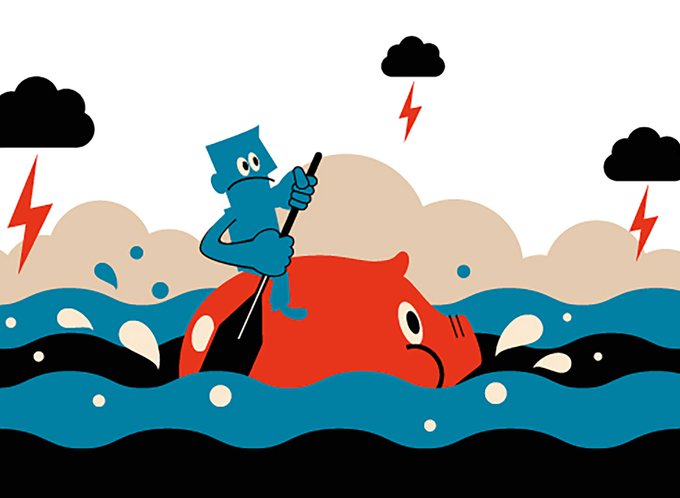MAS Head of Investments Colin Thomson explains the difference between active and passive investment strategies and why MAS opts for active investment with both its Members’ KiwiSaver funds and its own capital.
 Whether an active or passive investment strategy suits you comes down to your own investment philosophy, how much risk you’re comfortable with and what your investment timeframe is, according to MAS Head of Investments Colin Thomson (pictured).
Whether an active or passive investment strategy suits you comes down to your own investment philosophy, how much risk you’re comfortable with and what your investment timeframe is, according to MAS Head of Investments Colin Thomson (pictured).
“Passive investment is about spreading risk over a broad base. A passive investor is happy to be never 100% wrong, never 100% right – in other words, a ‘least regret’ philosophy about what individual company they did or didn’t invest in.
“But an active investor is someone who asks why would I just sit in the markets and watch individual stocks go way up or down and not try and capture that potential extra value by asking someone to pick investments for me?”
Active versus passive
Active investment managers aim to beat the market by making conscious choices about what to invest in. This involves an experienced fund manager who oversees investments, looking to stay on top of any changes in the market by making smart decisions around what to buy and sell.
By contrast, passive management is based on mathematical models that aim to replicate what a particular investment market such as the NZX50 or S&P500 is doing. This “index-tracking” methodology to buy does not consider the future potential of a company but rather simply transacts based on the size of a company in the particular market index. The returns that a passive investor gets back represent overall market performance minus fees.
Conscious choices
MAS takes an active investment approach both when it comes to making investment choices for Members as manager of the MAS KiwiSaver Scheme and its own capital reserves. This approach is based on MAS’s underlying investment philosophy, says Colin.
“We believe that active investment managers can add value. We also believe it’s possible to identify and appoint the managers who are going to do this but that they need to then be carefully monitored.”
MAS spends an enormous amount of time and effort to make sure its investment managers are delivering strong returns and employs external experts to review their progress, says Colin. And the evidence shows this approach pays off for MAS Members.
“For the five years to 30 September 2021, all our KiwiSaver funds outperformed the industry average.”
While MAS is an active investor, Colin is keen to stress that index funds have a role to play in any portfolio. Even active managers use some index funds as a simple method of getting low-cost market exposure, he says.
“Warren Buffet said diversification is protection against ignorance. If you’re not an expert investor, index funds are a simple way to reduce your probability of significant loss, but that also reduces the probability of significant return.”
Risk vs reward
Market downturns, like the one caused by the COVID-19 crisis in early 2020, can present a great opportunity for active fund managers, says Colin.
“That was one of the sharpest falls and rebounds in history. While it was important to protect capital as the market fell, there were also opportunities to take advantage of the slump to invest in fundamentally sound companies.
“The reason you employ disciplined managers is to look past what’s happening in the here and now and identify long-term trends. That is a valuable approach not only when markets slump due to extraordinary circumstances like COVID but also when companies are buoyed up to unnaturally high levels by market hype.
“Sometimes, active investment decisions can take more than one economic or business cycle to pay off. If you have a long-term timeframe, which most KiwiSaver investors do, then there’s a great opportunity to take an active approach.”
The rise of digital investment platforms means more people are able to invest more easily, but democratising investment doesn’t necessarily mean investment literacy has improved, says Colin.
“People are investing based on historical returns, on momentum, or based on brands. They see share prices going up and jump on, but they’ve often bought at the peak. These psychological tendencies can really hurt investment outcomes.”
This article is of a general nature and is not a substitute for professional and individually tailored advice. No person guarantees the return of capital or the performance of investment funds. Returns indicated may bear no relation to future performance. The value of investments will fluctuate as the values of underlying assets rise or fall.
Medical Funds Management Limited is the issuer and manager of the MAS KiwiSaver Scheme and the MAS Retirement Savings Scheme. The PDS for each Scheme can be downloaded here.
Know someone who might enjoy this?
Money
See all-
March 2021
Reimagining the Kiwi homeownership dream
-
July 2022
The Curve: Raising financial literacy
-
July 2022
Saving through the storm



